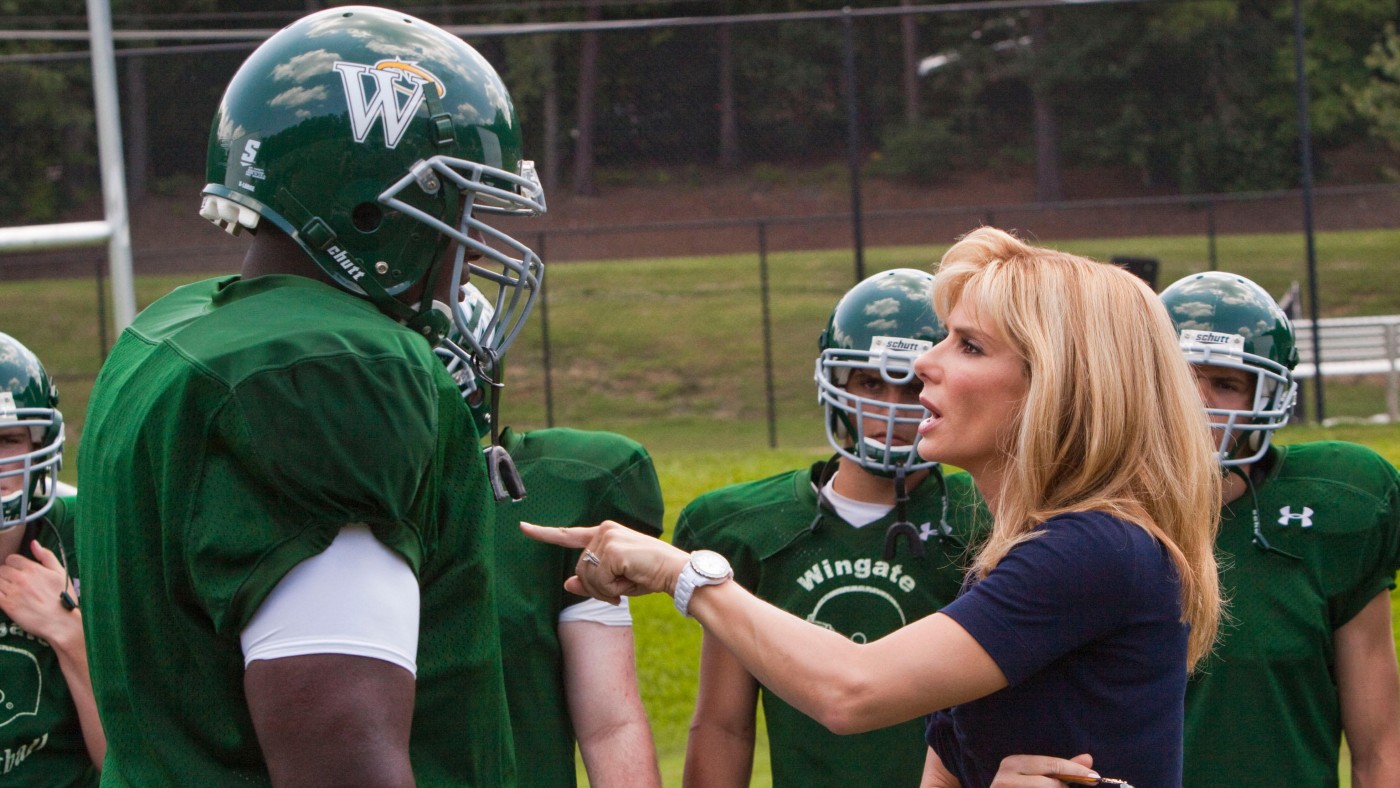Blind Side subject Michael Oher sues ‘adoptive parents’
Former NFL star alleges story that became Hollywood blockbuster was all a lie

A free daily email with the biggest news stories of the day – and the best features from TheWeek.com
You are now subscribed
Your newsletter sign-up was successful
Michael Oher, the real-life subject of Oscar-winning film “The Blind Side”, has alleged the story is built on a series of lies.
The “rags-to-riches tale” about the foster child who became an American football star was an inspiring 2009 film. But 37-year-old Oher, who last played in the NFL in 2016, is now suing Sean and Leigh Anne Tuohy, the Tennessee couple that supposedly adopted him.
Oher is claiming the adoption never took place. He accuses the Tuohys of “lying to him by having him sign papers making them his conservators rather than his adoptive parents”, The Associated Press reported.
The Week
Escape your echo chamber. Get the facts behind the news, plus analysis from multiple perspectives.

Sign up for The Week's Free Newsletters
From our morning news briefing to a weekly Good News Newsletter, get the best of The Week delivered directly to your inbox.
From our morning news briefing to a weekly Good News Newsletter, get the best of The Week delivered directly to your inbox.
“Conservatorships are US court orders that appoint a parent or legal guardian to oversee the personal or financial affairs of someone incapable of fully managing their own affairs because of their age or disability,” said the BBC.
Oher has asked for the conservatorship to be fully terminated as well as “for a full accounting of the money earned off the use of his name and story”, AP added.
He alleged the Tuohys and their two birth children, Collins and Sean Junior, “received $225,000 each plus 2.5% for the film that went on to gross $309 million worldwide”, Deadline said. Oher claims he received nothing.
Responding to allegations, Sean Tuohy told the Daily Memphian the family were “devastated”. “It’s upsetting that people would think I would want to make money off any of my children,” he said.
A free daily email with the biggest news stories of the day – and the best features from TheWeek.com
“The Blind Side”, which starred Sandra Bullock, has been criticised for promoting a “white saviour” narrative – where a white character is lauded for rescuing a person of colour.
Expressing disquiet about the film in 2009, NPR’s Michel Martin questioned whether it reinforced a belief that “African-Americans don’t really exist in their own right but rather, as foils for white virtue or redemption”.
Oher has said that the film had a negative effect on how he was seen as a player. “People look at me, and they take things away from me because of a movie,” he told ESPN in 2015. “They don’t really see the skills and the kind of player I am.”
Rebekah Evans joined The Week as newsletter editor in 2023 and has written on subjects ranging from Ukraine and Afghanistan to fast fashion and "brotox". She started her career at Reach plc, where she cut her teeth on news, before pivoting into personal finance at the height of the pandemic and cost-of-living crisis. Social affairs is another of her passions, and she has interviewed people from across the world and from all walks of life. Rebekah completed an NCTJ with the Press Association and has written for publications including The Guardian, The Week magazine, the Press Association and local newspapers.
-
 How the FCC’s ‘equal time’ rule works
How the FCC’s ‘equal time’ rule worksIn the Spotlight The law is at the heart of the Colbert-CBS conflict
-
 What is the endgame in the DHS shutdown?
What is the endgame in the DHS shutdown?Today’s Big Question Democrats want to rein in ICE’s immigration crackdown
-
 ‘Poor time management isn’t just an inconvenience’
‘Poor time management isn’t just an inconvenience’Instant Opinion Opinion, comment and editorials of the day